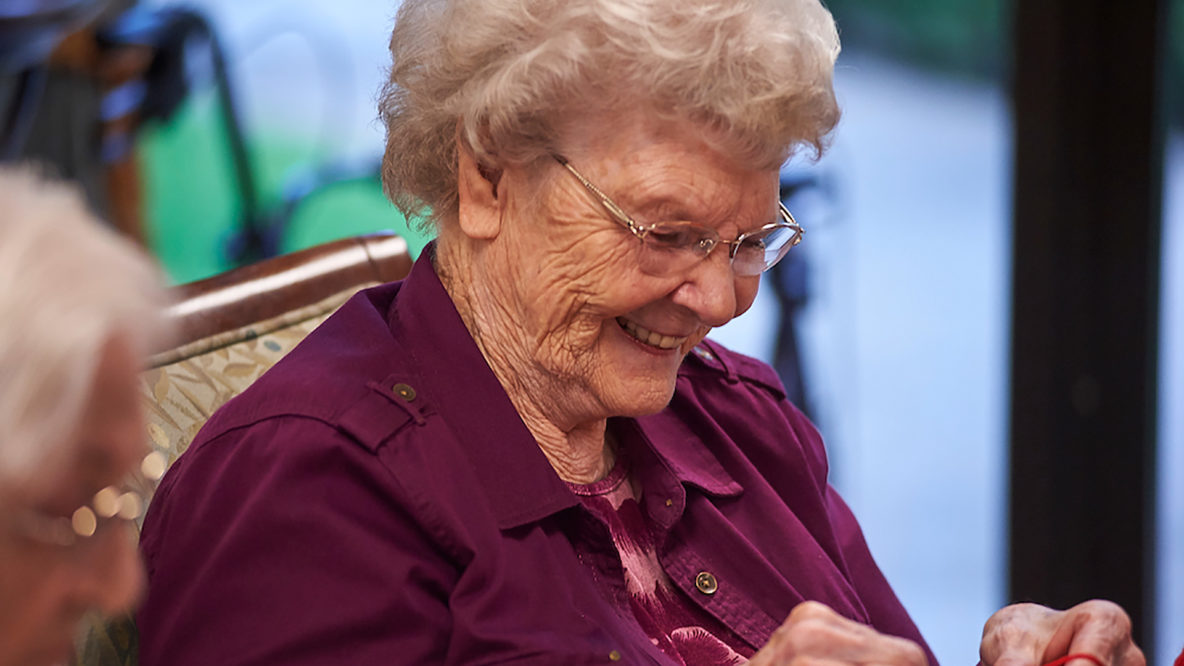Alzheimer’s disease changes everything. And when your spouse has Alzheimer’s disease, it also changes your relationship. As your loved one progresses through the stages of the disease, it’s important to know what to expect, and how to take care of yourself. Just as important is deciding when it is time to consider memory support in a senior living community such as Senior Star, and how this choice can benefit you both.
When your spouse has Alzheimer’s disease: what changes and what doesn’t.
Your relationship changes. It’s not uncommon for someone with Alzheimer’s disease or other forms of dementia to forget they are married. They may even attach themselves to someone else and refer to them as their spouse. This can be due to the fact that your spouse is living in “real time,” and seeks another source for affection and reassurance in the midst of overwhelming confusion. As difficult as this can be, try to be supportive of the situation and not take it as rejection.
Your roles change. You may suddenly be taking on unfamiliar roles. Paying bills. Shopping for groceries. Doing household chores. Maintaining the car. Give yourself time to organize the necessary files or paperwork so you can stay in control of what needs to be done. Enlist the help of friends or professionals.
Your need for emotional connection does not change. Your relationship has shifted, but you still have a deep emotional connection with your spouse. Keeping that connection alive will benefit you both. It might be a soothing touch. Holding hands. Making eye contact to let them know you are there. As their world becomes more confusing, you can be a source of compassion and support—and you will benefit as well.
How to be there for your spouse and yourself.
Remember, it’s the disease. When your spouse has Alzheimer’s disease, their “filters” often fade away. That can mean uncharacteristically hurtful comments can come from them without warning. Remind yourself it’s the disease speaking, not your spouse.
Find laughter where you can. Having a good laugh can help your mind, body and heart. Find ways to laugh together at funny things that occur. You might use a shared memory to bring a smile to your spouse’s face and help relieve anxiety. And don’t forget to spend time with friends with whom you can share a laugh. Both you, and your spouse, benefit when you are caring for yourself in this way.
Be realistic. Take frequent breaks. Taking care of a spouse with Alzheimer’s disease can tax every part of you. It’s not only okay to take an occasional break, it’s good medicine for your physical and mental health—and it will help you be more present for your spouse.
Ask for help. Friends. Support groups. Counselors. Physicians. There’s a big network of people who want to be of assistance. Let a friend sit with your spouse one afternoon a week while you run personal errands. Ask a family member to help with housekeeping so you can concentrate on what’s most important. Consider respite care at a senior living community such as Senior Star so you can take a few days off and know your spouse is in good hands.
Forgive yourself. Every day will have its ups and downs, and sometimes you might feel overwhelmed. Be gentle with yourself. If your spouse has Alzheimer’s disease and it’s become too difficult to care for your spouse at home, it’s okay to choose a memory support program designed for their needs.
How memory support can benefit you both.
Once you’ve made the decision to move your spouse with Alzheimer’s disease into a senior living community, you’ll want to find one where your loved one will be known and valued. In Senior Star Memory Support, your loved one will benefit from:
- 24-hour care and attention from associates dedicated to giving your loved one purpose each and every day.
- Daily life that supports their needs and honors who they are. This includes special programming such as Destination Stations®, Snoelzelen® Multi-Sensory Environments, Dakim® BrainFitness Software, Music & Memory, and Signature Country Store Concept.
- A setting that is as safe as it is comfortable featuring a secure entrance, nurses on site 24/7 and emergency call bracelets for added peace of mind.
- Group dining that features nutritious fare selected for ease of eating, and served in a calm, soothing setting with assistance from dedicated caregivers. Special exercise and wellness programs with staff on hand for assistance.
At Senior Star, we do everything we can to make a positive difference in the lives of our Memory Care residents. Our communities provide experienced care that nurtures the individuality, knowledge, and skills that remain. Contact us. And download our free guide “A Family Guide to Funding Senior Care & Housing” for more helpful information.


